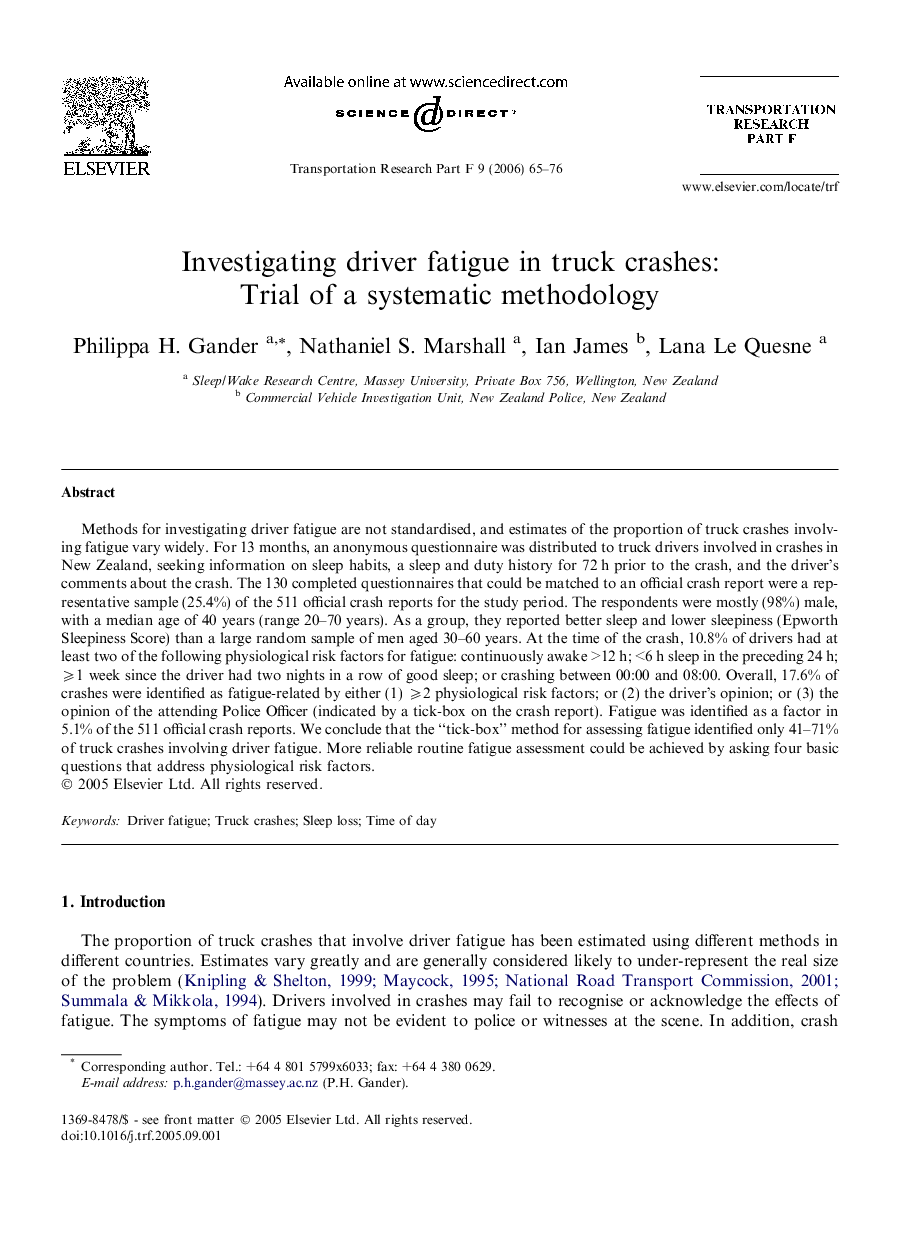| کد مقاله | کد نشریه | سال انتشار | مقاله انگلیسی | نسخه تمام متن |
|---|---|---|---|---|
| 898172 | 915249 | 2006 | 12 صفحه PDF | دانلود رایگان |

Methods for investigating driver fatigue are not standardised, and estimates of the proportion of truck crashes involving fatigue vary widely. For 13 months, an anonymous questionnaire was distributed to truck drivers involved in crashes in New Zealand, seeking information on sleep habits, a sleep and duty history for 72 h prior to the crash, and the driver’s comments about the crash. The 130 completed questionnaires that could be matched to an official crash report were a representative sample (25.4%) of the 511 official crash reports for the study period. The respondents were mostly (98%) male, with a median age of 40 years (range 20–70 years). As a group, they reported better sleep and lower sleepiness (Epworth Sleepiness Score) than a large random sample of men aged 30–60 years. At the time of the crash, 10.8% of drivers had at least two of the following physiological risk factors for fatigue: continuously awake >12 h; <6 h sleep in the preceding 24 h; ⩾1 week since the driver had two nights in a row of good sleep; or crashing between 00:00 and 08:00. Overall, 17.6% of crashes were identified as fatigue-related by either (1) ⩾2 physiological risk factors; or (2) the driver’s opinion; or (3) the opinion of the attending Police Officer (indicated by a tick-box on the crash report). Fatigue was identified as a factor in 5.1% of the 511 official crash reports. We conclude that the “tick-box” method for assessing fatigue identified only 41–71% of truck crashes involving driver fatigue. More reliable routine fatigue assessment could be achieved by asking four basic questions that address physiological risk factors.
Journal: Transportation Research Part F: Traffic Psychology and Behaviour - Volume 9, Issue 1, January 2006, Pages 65–76